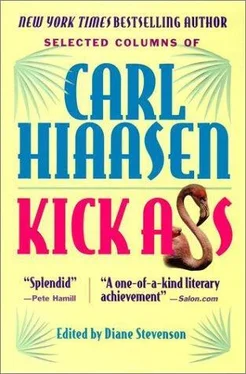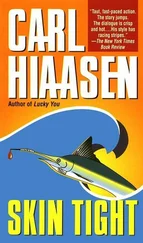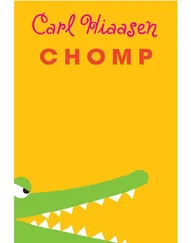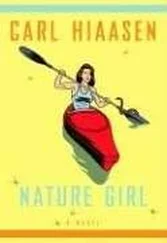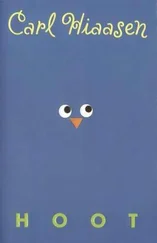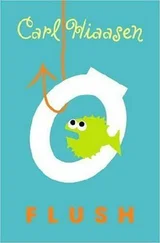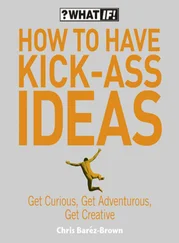It's called the Safe Neighborhood Parks Act, one of the most promising crime-fighting ideas to reach a ballot in Dade County.
It won't build a single new prison cell, or put one more police officer on the beat. What it might do is take thousands of at-risk kids off the street and give them places to play.
Working with the nationally recognized Trust for Public Land, a grassroots citizens' coalition proposes to raise $200 million for improving about 170 county and neighborhood parks.
The money would come from a sale of general obligation bonds. Cost to the average Dade property owner: about $8 a year. "The price of a pizza," says Hank Adorno, a former prosecutor who is helping to lead the campaign.
State Attorney Katherine Fernandez Rundle and others believe the Safe Parks Act will cut juvenile crime, which is exploding in Dade at a chilling, almost inconceivable pace. They say more kids can be saved if they've got somewhere else to go, and something else to do.
No matter where you live, the parks program would touch your family: in Northwest Dade, soccer and softball fields at Amelia Earhart; in the Grove, refurbishment of the Virrick Gym; in South Dade, lights for the athletic field at Benito Juarez.
There's also money for the Haulover pier, the Crandon beaches, the campground at Greynolds and select purchases of open and threatened green space.
Each project is described on the Nov. 5 ballot—reading through the list would be worth a few minutes of your time.
It sounds almost too good to be true. And if you've been reading the headlines the last few months, the obvious question is: How much of the $200 million really will go to the parks, and how much will be diverted or stolen?
Says Adorno: "I think we've made it politician-proof."
The ordinance provides that the bond money can be used only for capital projects, not for operating costs, debts or exigencies. If a municipality doesn't budget enough funds to maintain a park, it won't receive anything for improvements.
An oversight committee of citizens will be appointed by the Metro Commission, to make sure that the monies are spent only on voter-approved projects, and that beachfront cabanas don't get priority over inner-city gyms.
The ordinance also calls for independent audits, and allows taxpayers to sue if the park funds are misused or ripped off.
That's not to say every penny will be safe from thieves and incompetents. It is Dade County, after all. The program is doomed without keen-eyed, fair-handed supervision.
But strong, overriding arguments favor the parks bond. First, it's been done before successfully, almost 25 years ago. A result was Tamiami Park, Tropical Park and Metrozoo, three of the county's most popular recreation sites.
Second, something tangible must be done for a generation of restless urban kids who are, in shocking numbers, turning to crime and gangs. The cost to taxpayers of incarcerating just one is $40,000 a year. The tab for a career felon is stratospheric.
So the Safe Neighborhood Parks Act becomes a community investment, as well as an act of faith.
Of course the juvenile crisis is too complex to be solved simply by lighting a basketball court or building a swimming pool. But if it keeps one kid off the street corners and out of trouble, that's a pretty good start.
Easily worth the price of a pizza.
Stowaways ran in pursuit of their destiny
December 4, 1985
This fall, an Australian media tycoon named Rupert Murdoch was granted U.S. citizenship just so he could purchase seven television stations.
Last week, five Haitian stowaways seeking work in America arrived on a freighter in Fort Lauderdale. They weren't offered citizenship. They weren't even allowed off the boat.
In a scene straight from Victor Hugo, the men were left to swelter for days in an airless hellhole aboard the freighter Alco Trader .
The Bahamas, where they came from, didn't want them; neither did the United States. As both countries quarreled, the ship sloshed back and forth across the Gulf Stream, the stowaways its wretched prisoners.
This sad scene may be repeated in coming months as the Bahamas conducts a coldhearted purge of as many as 40,000 Haitians, many of whom have lived and worked in the islands for years.
For these Haitians, Florida is the next logical destiny, but there will be no parades for them here, either.
If the Alco Trader stowaways had been Cubans, Nicaraguans or Russians, you would have seen mobs of angry pickets and demonstrators. Congressmen would have lunged for the telephone, and the refugees would have been whisked to civilized quarters.
And if the stowaways seeking asylum had been Czechoslovakian tennis stars, you would have seen the red carpet rolling out; accommodations in the Hilton, not a hot box.
But Haitians have scant political clout and, so, are of scant use to those in high office. "They were treated like animals," says Father Tom Wenski of the Haitian Catholic Center. "What are they trying to come here for? For life. For a better life."
This country cannot absorb all the hemisphere's poor, but we also can't afford an immigration policy that is a contradictory mess. We speak in one voice to the rich and white, like Murdoch, and in another voice to the poor and black or brown. Meanwhile Congress remains unable to pass a cogent, equitable and humane law.
Haitians are shunned, yet millions of illegal Mexicans get work because Big Agriculture depends on them. Cubans are admitted as political refugees, while Haitians are rejected as "economic refugees"; in truth, there's little difference.
Haiti's stark poverty results partly from its despotic politics, a fact conveniently overlooked in Washington. President-for-Life Jean-Claude Duvalier is a friend and anti-Communist, and we do not upset our anti-Communist friends with talk of human rights.
But the plight of many Haitians is as pitiable as anything in Castro's Cuba; the poverty is more killing, and political persecution not only real but sometimes violent. This summer three Catholic priests were expelled from Haiti for speaking out against the Duvalier regime. A week ago three student protesters were shot to death by Haitian troops in the town of Gonaives.
If this is not repression, I'd love for someone at the State Department to tell me what is.
We Americans have a strange way of deciding who deserves to be in this country, and who doesn't. Citizen Murdoch wasn't fleeing political persecution in Australia; he came here to multiply his fortune.
Just like the Haitians in the cargo box.
Last Friday, the hot and hungry stowaways escaped from their stinking cell. It is unclear whether a guard looked the other way, or simply made a mistake, but I'd like to think the deed was the work of a compassionate heart.
Who can blame the men for escaping? I would have done the same; so would you. So would anyone with a shred of dignity.
If tradition holds, the refugees will soon find jobs, homes and sanctuary among 90,000 Haitian countrymen now living in South Florida. Much of the money they earn will be mailed home to poor relatives.
Somehow I feel better about the stowaways on the loose than I do about Rupert Murdoch.
Mass murders haunt Mayan asking refuge
June 27, 1986
Her name is Petrona Mateo Esteban. She is from Guatemala. She came to the United States because something horrible happened to her family in the highland village where she lived.
The United States says Petrona should not stay here, that it's safe for her to go home; there is a new government in Guatemala and things are looking up.
This week Petrona's deportation trial began in U.S. Immigration Court in Miami. It was a most unusual proceeding.
Читать дальше
